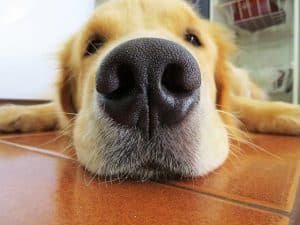Your cat has bad breath and you are bothered or you want to get rid of this awful breath? You should understand that this is a very common issue that has many possible causes that range from poor cat care to an underlying health issue. Today, we’ll discuss the causes, symptoms, test, prevention and how to fight halitosis in cats.
Bad breath in cats also known as feline or cat halitosis occurs because of several reasons that would involve care, mild to serious medical conditions. The breath may emerge alongside other symptoms that could be used in the bid to try to find out the underlying causes. Feline halitosis can be treated at home however, you should see a veterinarian for severe and chronic feline awful breath odor.
Before we look at the halitosis treatment and home remedies, you should first try and understand the underlying causes. Below are the common causes of halitosis in cats:

Contents
Common causes of odorous feline breath – halitosis
Causes can range from oral hygiene to diet to medical conditions or other conditions as well. The issue thus, can come and go or can be very extreme. See the common halitosis causes below:
1. Poor oral hygiene
In many cases, the poor oral hygiene is the main cause this problem. The build-up of foods and odor-producing bacteria are often blamed in this case. When foods particles and foreign bodies are trapped in the mouth, they would rot and make the mouth to smell bad.
Poor oral hygiene in cats or plague and tartar would also lead to infections in the mouth. This would eventually result in ulcers or bumps that would contain pus and smell as well. Infections would also affect the gums and teeth aggravating the whole ordeal. An infection of the teeth, a condition called periodontal disease would also result in such a foul odor.
2. Diet and bad odor
Dietary choices can also have a hand in cat or kitten bad breath. Promos.royalcanin.com.au, confirms that "Dietary issues can contribute to bad smelling breath with foods such as fish or liver based ingredients contributing to the smell."
When they chew foreign bodies such as rubbers, they can get blocked between the teeth and even trapped foods particles too. This would also result in an extreme bad breath.
3. Halitosis due diseases - kidney, liver, diabetes
This issue can just be more than oral hygiene or cat's diet. In rare cases, the feline halitosis can be linked to veiled internal conditions. This could include conditions such as kidney disease, accumulation of toxin in the body, diabetes and liver disease.
Scenarios of liver diseases would develop a gastrointestinal disease that would trigger vomiting. Vomits are usually associated with bad smell, and thus could the reason for the awful breath odor in your feline. With these conditions, the odor would accompany severe symptoms such as diarrhea, loss of weight and more.
You would be required to see a vet for effective treatment since severe feline halitosis would result from such conditions.
4. Gingivitis and stomatitis
The foul breath in cats can also involve gingivitis and stomatitis. Gingivitis refers to the inflammation of the gums, while stomatitis is the inflammations of mucus walls of the mouth. These conditions are common in cats and are usually caused by dental problems, allergies or infections from bacteria, viruses, and fungi.
5. Traumatic injury
Traumatic injuries to mouth would also lead to sores that can be infected and thus leading to bad smell. Such injuries could be due to teething, hitting mouth against hard surface etc.
Other causes would include mouth cancer, mouth ulcer, and intestinal blockage. Respiratory problems such as rhinitis and sinusitis. They can all contribute towards this problem.
Symptoms
This condition usually accompanies other symptoms that could be mild or severe. Remember, treating some of this symptoms would get rid of the feline smell. The symptoms would again vary diversely and they depend on the underlying reasons for a bad breath. Here are the symptoms that may occur alongside.
- Fierceness
- Loss of appetite
- Bleeding gums in cats
- Depression
- Drooling
- Excessive urination
- Mouth dysfunction
- Oral cavity rash
- Pain in mouth
- Swelling
- Thirst
- Vomiting
- Diarrhea
- Weight Loss
Due to the fact that there is a varied pool of causes of halitosis, there are still more symptoms but, all these would depend on the primary causes. Treatments would vary considering the underlying causes and symptoms.
Test or diagnosis
So, you want to know exactly why the foul breath in your feline. Well, there are several diagnostic procedures that can be carried out to evaluate the possible causes. These may involve dental check-up, blood test, blood count, tooth mobility and the concentration of sulfide.
A biopsy could also be carried out to determine whether the halitosis is due to infection or not. Remember the lesions may appear in the mouth of the cats and would have diverse causes. They could be also determined to see if other conditions such ulcers or cancers are present.
More procedures would include an ultrasound to evaluate the size of liver and kidney, endoscopy and FeLV or FIV. It is only the right and proper diagnosis that would determine the best cat bad breath treatment.
Chronic and constant bad breath
As we had indicated earlier, offensive breath can come and go or can be chronic. All these would depend on halitosis causes. A cat would have a chronic bad breath when good oral hygiene is not kept. The feline halitosis would also persist until the best treatment for the underlying causes is determined.
The bad odor would only vanish if the cause is completely treated, otherwise, it would be there to stay. In cases of constant halitosis in cats, it would reach a point where the feline would experience severe bad breath or extreme halitosis. This is when the causes are not identified earlier and treated in time.
How to eliminate bad breath in cats - treatments and home remedy
Treatment would depend on the causes and the severity of bad breath symptoms. The treatment here would include home remedy and prescription from a vet. Some of Halitosis treatments include the following:
Cat bad breath home remedy
There are many home remedies that can be used to treat or prevent halitosis. These would include products that can treat infections and relieve other related symptoms of halitosis. These are aloe vera, baking soda, apple cider and more. Brushing your cat's teeth regularly to remove the plaques and tartars is also very important for bad breath cure.
See a vet for more on severe cases. Such halitosis would not respond to home remedies.
Halitosis Treatment- OTC Products and Prescriptions
Halitosis solutions can also be found over the counter. There are certain products that can be used to stop this problem, depending on the cause. These would include various cat mouthwash packed with various ingredients, postnasal drip bad breath and cat breath mints. There are many OTC products for the feline foul smell, however, these may not be the permanent solution.
Some brands to go for include Dental Fresh Water Additive for Pets, TropiClean Fresh Breath, Oxyfresh Pet Toothpaste for Dogs & Cats, Emmy's Best Premium Dog, and Cat Breath Freshener, et cetera.
Prescription by a Vet
Severe bad breath in cats or constant one can be beyond the scope of home remedies or even the OTC products for halitosis. You should then proceed to your vet for treatment.
Prescription of antibiotics, antifungals, steroids and more advanced therapies would be administered. Surgery and chemotherapies could be applied to clear tumors and cancer respectively. Such prescriptions would be applied alongside other procedures for better results. Among them is the good diet that would relieve reflux and kidney problems.
How to prevent bad breath
Prevention is very important than treating the resultant symptoms. There are many ways in which several halitosis causes can be prevented. Here are the best techniques for preventing halitosis.
- Regularly check up its teeth. See the veterinarian immediately you come across symptoms such as bleeding, redness, bumps and bad breath among other symptoms
- Brush your kitten's teeth to remove the plaque and tartar that could result in oral infections
- Reduce the canned food the feline's diet. Give it the foods that would not interfere with chewing process.
- Talk to a veterinarian about the good diet to go for.
- Schedule regular health check-up to stay alert on the dental, oral and general health.
Summary
Due to the many causes and symptoms of halitosis in cats, performing the right and proper diagnosis at home would be challenging. Seeing a veterinarian for check-ups is thus the best idea so far. He/she would bring you to light on whether the bad smell is due to medical conditions such as kidney diseases or liver problems among others
Our sources of references
- https://pets.webmd.com/cats/guide/bad-breath-cats#1
- https://oxyfresh.com/5-secrets-to-fighting-cat-bad-breath/
- https://www.petful.com/pet-health/symptoms-causes-bad-breath-cats/
- https://www.petmd.com/cat/general-health/bad-breath-cats-how-prevent-and-treat-it
- https://www.1800petmeds.com/education/bad-breath-remedies-cats-4.htm
- https://www.cat-world.com.au/bad-breath-in-cats.html





Leave a Reply
You must be logged in to post a comment.